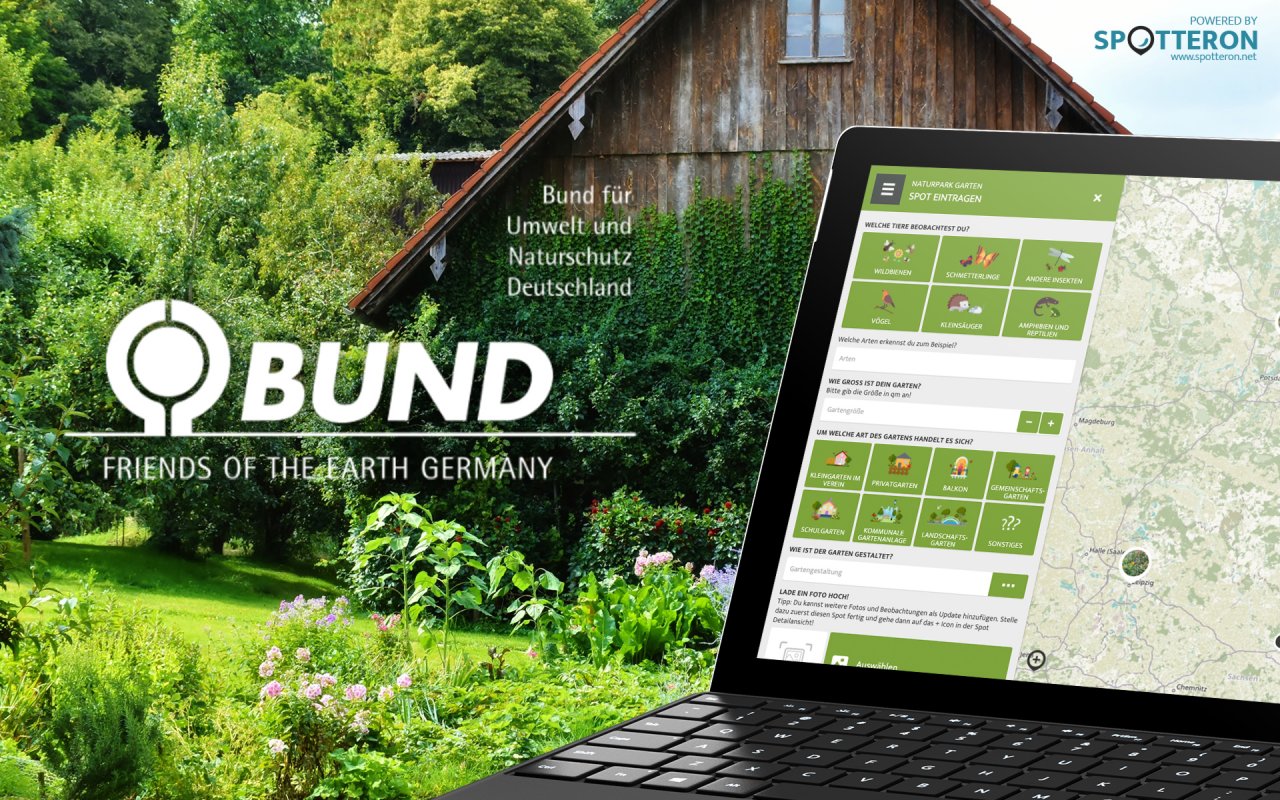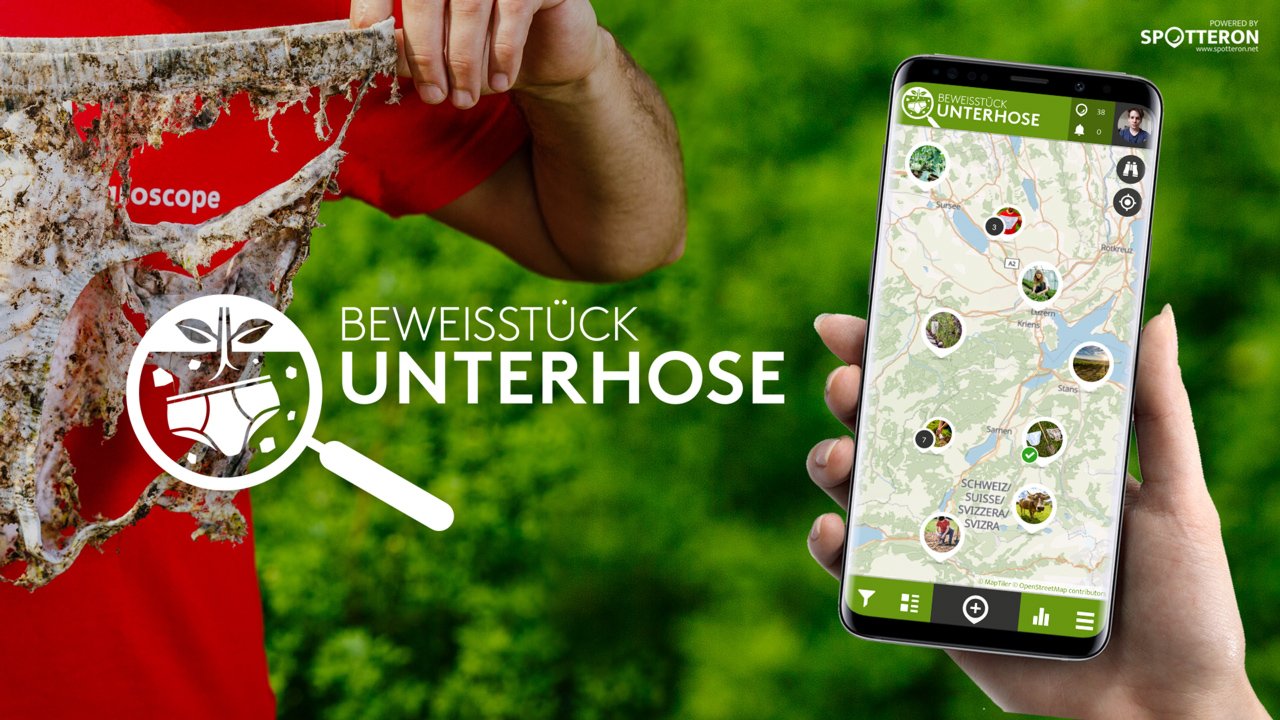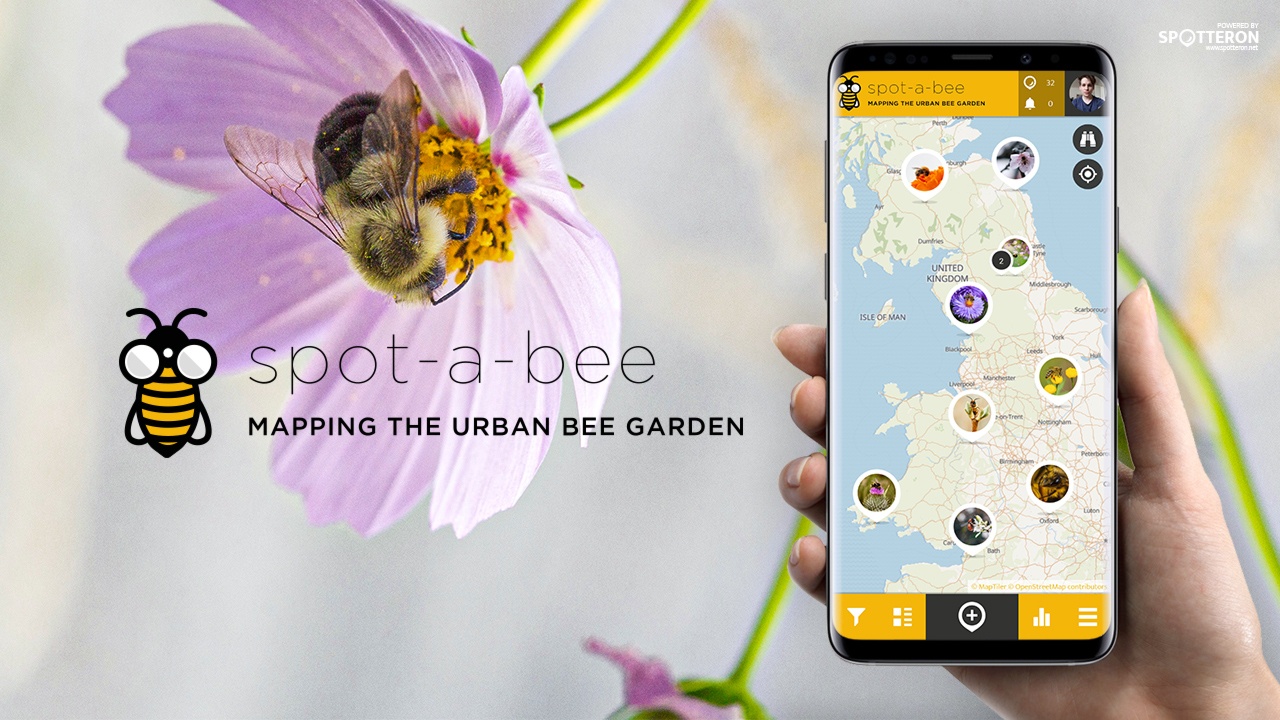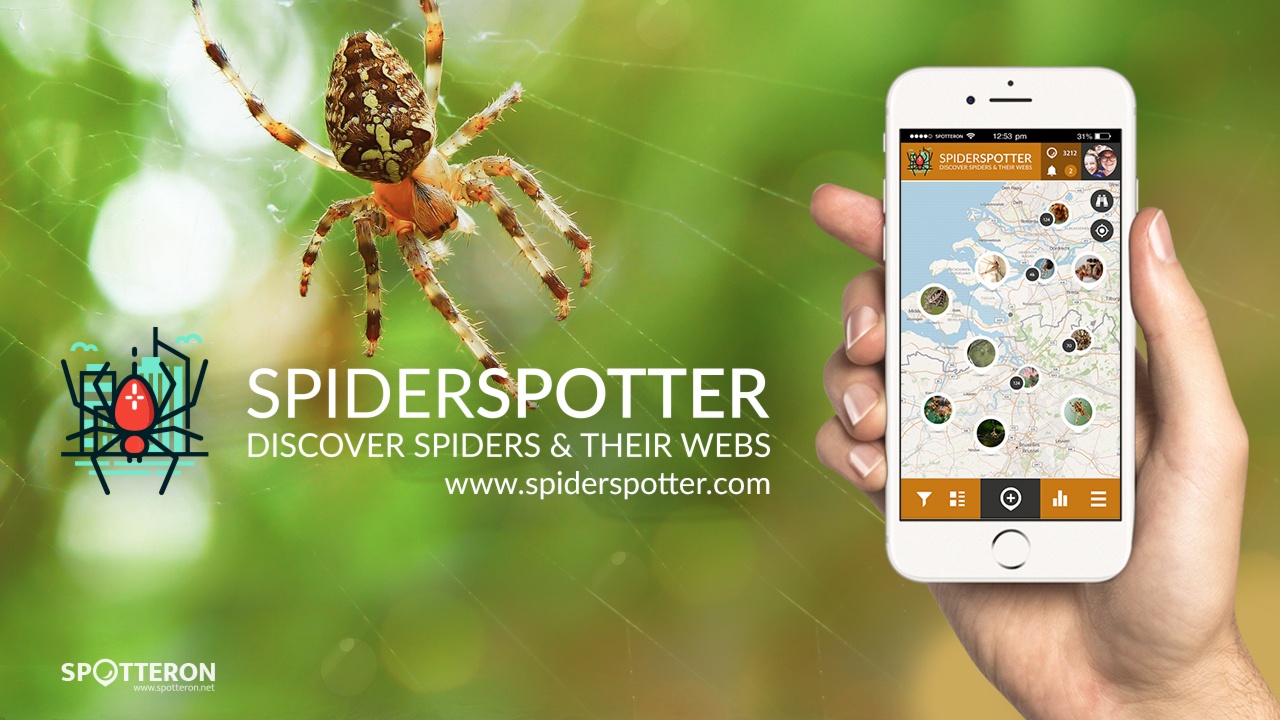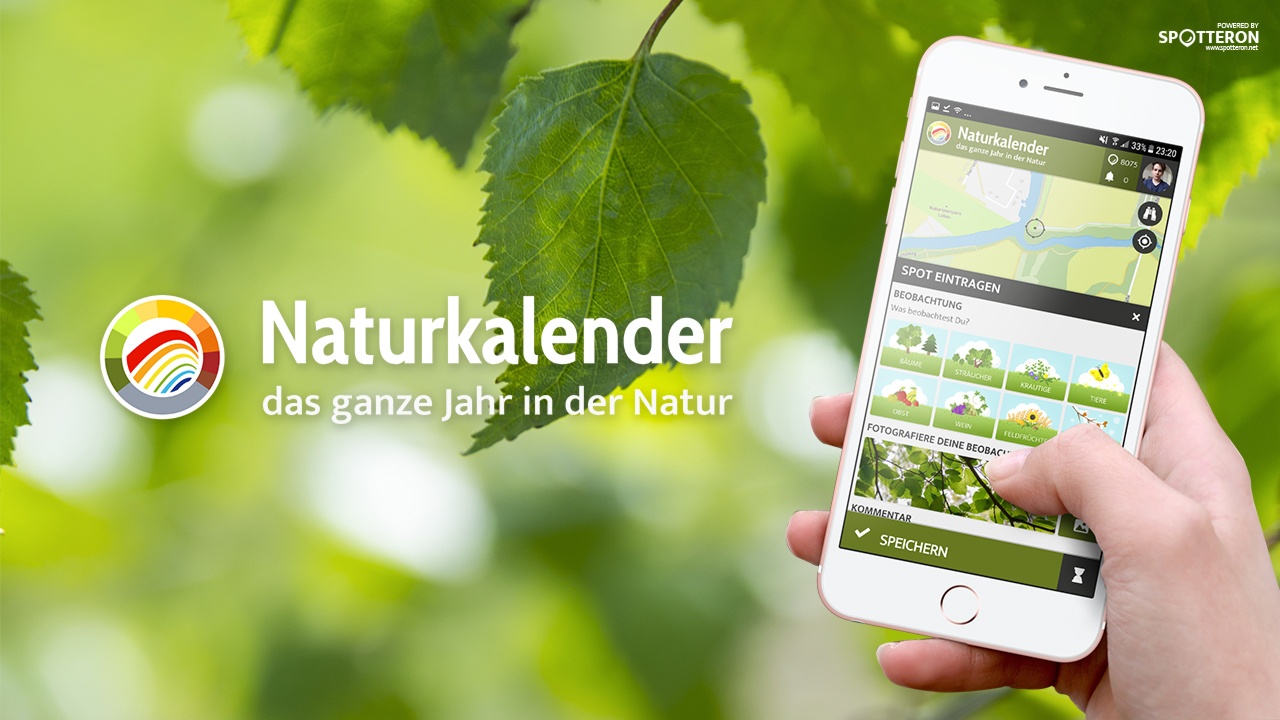Short note: This website is in Beta - we are currently building everything up but you can already find the apps to download and participate! Thank you and stay safe!
Nature Park Garden - Small Gardens, Big Impact | BUND
Gardening is currently experiencing a renaissance. Eating fresh, healthy fruits and vegetables from your own garden is a beautiful experience. It is even better when you consider natural cycles in cultivation, avoid pesticides and peat, and promote biodiversity. Gardens offer enormous potential for protecting biodiversity. This Citizen Science App will help you with that!
Be part of creating a large nature park of insect-friendly gardens!
Allotments and private gardens, and communal green spaces with their biodiversity are part of the German cultural heritage and have enormous potential as habitats for insects, birds and small mammals, provided they are managed in a natural and pesticide-free manner. Many hobby gardeners are already doing this, but the knowledge is often not very widespread. The BUND would like to make the large area of near-natural gardens visible and put it into focus.
Why participate?
The BUND gives tips and advice on natural gardening without pesticides and peat and for diversity in the garden and would like to encourage gardeners, school classes, municipalities and interested parties to make their gardens, areas and balconies insect-friendly and to share their experiences. The aim is to create a large contiguous area (biotope network) of insect-friendly gardens in Germany, where valuable species can spread out and thrive. Take part and put your garden, school garden, balcony or communal green space on the map and help protect our nature and biodiversity!
Slip of Evidence
Do you know what the connection is between underpants and vegetables? Underpants can be used to assess how alive the soil is. In this Citizen Science project, scientists from the University of Zurich and Agroscope Switzerland are testing whether this is true. 'Slip of Evidence' invites every citizen to join in and do research, whether you are a farmer, hobby gardener, self-supporter or flower lover.
Spot-a-Bee
At the Spot-a-Bee Citizen Science project, the researchers of Cardiff University and the University of Glasgow, UK want to find out what plants, trees and shrubs are important for bees in city and town parks and gardens. People can help survey bee-friendly plants towns, cities and villages! If you spot a bee, use your mobile to take a picture of the plants they’re buzzing around and upload the spot in the Citizen Science app.
Explore the fascinating world of bees with Citizen Science
The Spot-A-Bee app allows you to observe and document any flowers, shrubs, climbers or trees and the bees on them. Additionally, it contains useful information on those plants and the most common bee species in the UK.
As a bonus, the researches behind Spot-A-Bee also want to understand how planting in urban spaces might affect the production of urban honey.
SpiderSpotter
Do you like spiders? In the SpiderSpotter Citizen Science app, you can share your observations of spiders and their webs to help the research about their adaptation to the environment and contribute to biodiversity monitoring. The app features a range of spider species with and it has an active community of spider enthusiasts and arachnologists. If you love spiders (or at least appreciate them) join this Citizen Science project!
Spiders, their colours and their nets
The increasingly hot summers of recent years are problematic, not just for us humans - especially in the cities. The concrete and the buildings heat up during the day, and radiate the heat back during the night, causing challenges for all living beings. Of course, spiders are also looking for new ways and means to adapt to these new conditions. With the SpiderSpotter app, scientists are trying to figure out how these changes are going to happen.
Lighter cars heat up less than dark ones - that's a well-known fact. However, this also applies to spiders! Scientists, therefore, expect spiders to adapt to the city's hotter temperatures by becoming brighter over time to prevent overheating.
By studying spiders, their colours, and webs, scientists get not only valuable information on how animals adapt to climate change but also how fast climate change is progressing. Also, with a little bit of luck, they may provide us with some answers on how to cool our cities in the future better.
Nature's Calendar
"Naturkalender" (Nature's Calendar) is the Austrian phenology app for interested Citizen Scientists who want to support phenology and climate protection by observing their surroundings. The focus lies in the development of certain so-called phenological indicator plants. Through community science observations of plants that start to bloom, bear fruit, or shed their leaves, or animal activities, they support the data collection of the Austrian Central Institute for Meteorology and Geodynamics (ZAMG) and the European Phenology Database.
Better understaning of climate change and what to do about it
These observations have been recorded at the Central Institute for Meteorology and Geodynamics (ZAMG) since 1851. Since then, voluntary so-called Citizen Scientists have been supporting them all over Austria by observing nature for us. With the Nature's Calender Citizen Science app, phenology has finally arrived in the 21st century. Here you can easily record your own nature observations on the map with your smartphone all year long, be active in the nature calendar community and, at the same time, learn a lot about nature. Due to the easy handling of the app, people from all age groups can be found in the community, and a lively exchange of interesting information takes place. And best of all: with your entries, you can help scientist to better understand climate change and find solutions for the challanges it brings.
Can I use my user account in multiple apps?
Absolutely! After creating your user account, you can log in with it in all apps and projects on the SPOTTERON platform without the need to register again. You can find additional apps and topics here: https://www.spotteron.app/apps - Please be invited to download any app which you like to join and start spotting!
How can I erase my stored personal data?
GPS-Location doesn't work. What can I do?
Please visit the website about the SPOTTERON Platform on www.spotteron.net
This website uses no external trackers, no analytics, just session cookies and values your online privacy.

